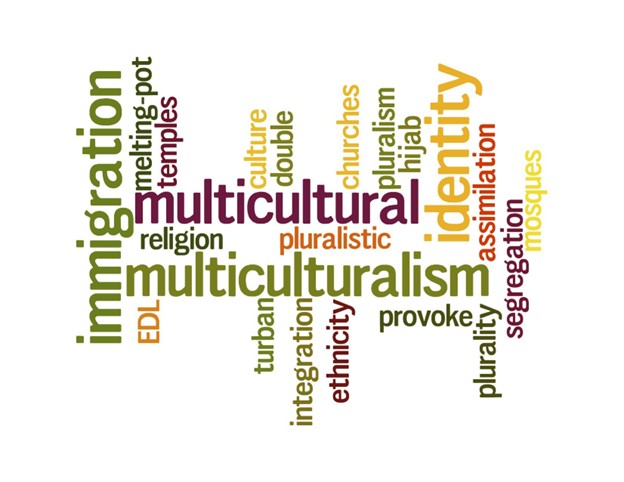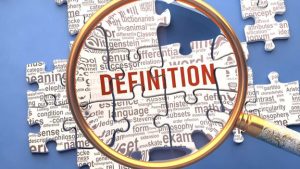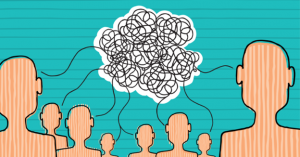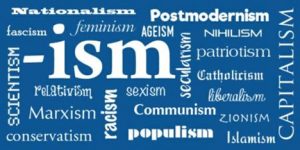PROBLEMATIC TERMS IN TOPICAL DISCOURSE

It can hardly have escaped our notice that certain terms crop up again and again in political discourse and the media. Many of these are used as repetitive mantras, which can be either vacuous or loaded with implications. What, for example, is a “moderate” Muslim? What does it mean to be “civilized”? What is “terrorism”? What is “the International Community”?
Let us take six examples of the way in which our glossary might deal with problematic terms: “multiculturalism,” “pluralism,” “tolerance,” “integration,” “radical,” and “secularism.”
In recent years, some European leaders have lamented what they see as the “failure” and even the “death” of multiculturalism. This word, however (as briefly explained in Chapter 3) might refer to at least three different notions: first, the existence of plurality or diversity (“multiculturality”); second, the model of multiculturalism which promotes tolerance between separate communities within plural societies (sometimes referred to as “plural monoculturalism”); and third, multiculturalism as an active process of constructive engagement between different communities (sometimes called “interculturalism”).
The phrase “passive tolerance” has also been used to express disapproval of the “plural monoculturalism” or “cosmopolitanism” which tolerates the existence of “minority” communities in separate enclaves but does not actively seek to “integrate” them into wider society and promote “social cohesion” through a common narrative or set of agreed national values. Furthermore, according to this view, “passive tolerance” which turns a blind eye to “extremist ideology” and the “radicalization” it promotes should not just be disapproved of but actively countered. In other words, there should be “intolerance of intolerance.”
While there may be many valid reasons to critique “passive tolerance” it is nevertheless profoundly misleading to appear to suggest that multiculturalism in its critically important sense of active intercultural engagement is dead. Lack of care in distinguishing such concepts can have profoundly negative consequences not only for minority communities but also for wider society. After all, Anders Breivik, the Norwegian ideologue who killed 69 people in a mass shooting on the island of Utoya in 2011 was motivated by hatred of the multiculturalism which he saw as an assault on racial and cultural purity and which raised for him the hideous spectre of the “Islamification” of Europe.
In advising us that we have been “made into nations and tribes so that we may come to know one another” (49:13), the Qur’an itself implies that we must go beyond the unchallenging mediocrity of mere tolerance and engage in active and open-heartened dialogue with other cultures. Now, we cannot truly know one another if our relationship with each other is little more than a kind of sullen tolerance, or in the words of Diana Eck “a passive form of hostility,” a “shaky truce,” or, as is sometimes the case, an “expression of privilege.” Omid Safi reminds us that the connotations of “tolerance” are deeply problematic. The root of the word comes from medieval toxicology and pharmacology, marking how much poison a body could “tolerate” before it would succumb to death. He asks: “Is this the best that we can do? Is it our task to figure out how many ‘others’ we can tolerate before it really kills us? Is this the most sublime height of pluralism we can aspire to?” Like him, I don’t want merely to “tolerate” my fellow human beings, “but rather to engage them at the deepest level of what makes us human, through both our phenomenal commonality and our dazzling cultural differences.” This is the process of seeing the self in the other, which Rumi describes in one of his discourses as integral to the attainment of wisdom, and which Abdulkader Tayob sees as integral to educational reform. The rejection of “passive tolerance” can never merely be synonymous with “intolerance of intolerance” but must include the higher ambition of active intercultural engagement.
All these considerations might prompt us, no matter what our ethnic, cultural, or religious affiliation, to wish to define our own vision of multiculturalism and pluralism as going well beyond the bog standard of mere tolerance and aspiring to that level of mutual self-understanding and transformation. This involves a process of “integration” which first and foremost refers to the personal integration which comes about through psychological, moral, and spiritual development. After all, as the Qur’an tells us, God does not change the condition of a people until they change what is in their inner selves (13:11). In our political and media culture, the word “integration,” however, is often bandied about with an implied meaning which is little or no different from that of “assimilation” which effectively means “making something the same as something else.” Integration, on the other hand, comes from a root which gives us the words “integer” (whole or complete) and “integrity.” To integrate is certainly to become a law-abiding and socially responsible citizen, but it is not to be cloned as someone else, totally absorbed into a monoculture, with all traces of one’s own heritage extinguished.
As for the word “radical,” we have in Britain an honorable “radical” tradition of reforming liberalism, intelligent social activism and legitimate dissent which has historically guided our national evolution towards a free, just and tolerant society, but “radical Islam” and “radicalization” when applied to Muslims, invariably has the connotation of extremism, and even violent extremism. Yet, the sense of “radical” as “root and branch change” (Latin radix, root) or decisive and even drastic departure from customary norms need carry no necessary negative connotation when applied to other spheres. The remedy to counter “radical Islam” is often proposed as being in the hands of “moderate” Muslims, never in the hands of those who can reclaim a truly “radical” vision of Islam which is in harmony with the underlying humanity of core Islamic principles and values. The final paragraph of the Contextualising Islam in Britain II report compiled by the University of Cambridge Centre of Islamic Studies for the Department of Communities and Local Government (DCLG) in 2012 frames this positive sense of radicalism:
The excavation of the higher ethical principles by which the Islamic polity was constituted in its most original forms implies a vibrant and confident social activism in support of an open-ended and dynamic radical politics for the continued progressive transformation of our societies. A renewed Islamic public theology offers rich resources for a broad alliance of citizens to develop inclusive and collective responses to the many interconnected and deepening crises in the contemporary world.
In such a way, Muslims might aspire to be a creative minority within our societies to power such a vision. The fact that any reference to “radicals” amongst them is invariably couched in terms of violence, extremism, and fundamentalist religiosity is a telling example of the one-sided distortion of terminology which our glossary needs to address.
Finally, the word “secularism” is often bandied about with either strongly negative or positive connotations which reflect polarized ideological positions. Like “relativism” and “modernism” it can be demonized by religious traditionalists as the cause of every ill, and conversely it can be sanctified by ideologues as the source of all the benefits enjoyed by “advanced” societies. Once again, we need to be clear about what kind of secularism we are talking about. We need to distinguish between “procedural” and “ideological” secularism. The former is sometimes also referred to as “passive” and “pluralist,” and the latter as “assertive” and “corporatist.” Procedural secularism protects the equal rights of all citizens, while freely allowing religious citizens to participate fully and robustly in open debate in the public sphere. As such, it has brought many benefits to humanity, ensuring religious and political freedoms for minorities. Ideological secularism, on the other hand, attempts to exclude, marginalize, or rigorously control religious voices and institutions in the public (and even the private) sphere.
The importance of procedural secularism in defending liberty of conscience was discussed in some depth in the first Contextualising Islam in Britain report (Exploratory Perspectives) compiled in 2009:
There is a web of misunderstanding, not confined to Muslims, regarding the true origin, nature and intent of secularism. The core of the idea of the secular state is not anti-religious, for the historical separation of the powers of church and state in the West actually guaranteed the status of religion and the freedom of the church from state control, ensuring that neither should interfere in each other’s domain of government. Secularism is therefore essentially a contract, ensuring religious freedom, tolerance and peace within a shared political space. An important aspect of the separation of powers is the fundamental principle of liberty of conscience, a principle ardently advocated by Martin Luther, the father of Protestantism. Insisting that God requires voluntary and sincere religious beliefs, Luther sets out the principle that forbids human authorities from compulsion or coercion in matters of faith, since any such compulsion would render faith insincere. The role of the civil government is simply to maintain peace and order in society. The principle of liberty of conscience is absolutely in accord with the Qur’anic injunction that “there shall be no coercion (ikrāh) in matters of faith (2:256).”
The term “secular” comes from the Latin saeculum, which means “this age” or “the present time,” and the concept refers to the condition of the world at this particular time or period or age. As argued in Chapter 3, “it is precisely by recognizing and understanding the condition of the world at this particular time that the challenge of religious and cultural pluralism can be met. This is not to give precedence to the temporal world over the spiritual world, nor to set one against the other, but to understand that human minds are conditioned differently in each age, and that tradition must be dynamically self-renewing and responsive to new conditions and new questions if it is to remain a living tradition. In other words, time, place, and people cannot be ignored in the development of human understanding.” Whilst it is important to guard against modernism and secularism as uncompromising ideologies which are essentially inimical to the spiritual quest, it is equally important to take account of the reality of contemporary conditions and to remain open to discover what contemporary life has to offer in supporting that quest.
In relation to education, it is often held that “secular” education systems provide a “neutral” space which guards against religious “indoctrination.” It can be argued, however, that all education systems are based on particular conceptions of human nature, faculties, ideas, and beliefs, even if underlying ideologies may not be made explicit. It has been claimed that in the wider context of the debate about faith schools, secular schools (as opposed to faith schools) are not ideologically free zones. Secularism as an ideology has its own assumptions about the human person, the ideal society, the ideal system of schooling, and the meaning of human existence. While these assumptions may not be formally codified into a curriculum subject designated “secular education” as an alternative to “religious education” it can be argued that they characteristically permeate the ethos and culture of state-provided secular schools and form a crucial part of the hidden curriculum.
“Secularism,” like the other problematic terms identified here, is a good example of a loaded term which we need to navigate with care, taking due account of all its connotations. While we might well agree with Ibn Rushd that we should respect the different uses of the same word because they represent different points of view and show how it is possible for one thing to be described in a variety of ways, we also need to take fully on board Francis Bacon’s insight that understanding is not only hindered by the common definition of words but also (even among the more learned) by disputes over their multiple meanings. And it is this fundamental problem which drives our intention, as Sardar puts it, to define a set of key terms in our own specific way and incorporate them within the Integration of Knowledge discourse.
In conclusion, I offer a model entry for the proposed glossary of key terms, the work in progress identified by Sardar as “a tool for developing a more nuanced understanding of indispensable terms and concepts that become the building blocks of the Integration of Knowledge discourse.” The entry chosen is the one on EXCELLENCE, for it expresses very well the intention not only to develop that nuanced understanding derived from etymological, historical, intercultural, and inter-faith exploration of this important word, but also to arrive at a meaning that is consistent with the navigational principles I have endeavored to define in this essay and which enable us to set our own course.
This article is an excerpt from: Ziauddin Sardar & Jeremy Henzell-Thomas, Rethinking Reform in Higher Education (London/Washington: IIIT, 2017), pp. 203-9.
The views expressed in this article are those of the author and do not necessarily reflect the views of the International Institute of Islamic Thought (IIIT).




